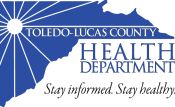The Environmental Health Department will conduct inspections and provide information on various programs in Lucas County. These types of inspections include school building inspections, public bathing beaches, keeping livestock within the Toledo City limits, and rooming house inspections in the Toledo City limits. Should you have any questions regarding any of these programs, please call 419-213-4100 ext. 3.
School Building Inspections
School buildings with grades K-12 are inspected by TLCHD twice a year. If you are a school and would like additional information regarding a school inspection or would like to schedule your building inspection, please call 419-213-4100 ext. 3.
City of Toledo-Keeping of Chickens
In June 2015, the City of Toledo passed a new ordinance that allows chickens to be kept within the city limits. Within the new ordinance, if a person wishes to keep chickens in any manner that does not comply with the Toledo Municipal Code (TMC) section 1705.11, a permit will be required. An application and permit will be issued by TLCHD.
City of Toledo- Keeping livestock in City limits
According to the Toledo Municipal Code, Chapter 1705.05 Keeping Livestock in City limits,
“No person shall raise or keep any hogs, cows, goats, geese or ducks, or any number thereof, within the corporate limits of the City, without having first obtained a written permit from the Commissioner of Health to so keep such hogs, cows, goats, ducks or geese, or any number thereof, and such permit may at any time be revoked by such Commissioner of Health, provided that when such permit is granted, such hogs, cows, goats, geese or ducks, or any number thereof, shall be kept upon and within the confines of the premises of the owners of such hogs, cows, goats, geese or ducks.”
To apply for a livestock permit in the City of Toledo, a letter must be sent to TLCHD for approval. Please download or print our “Keeping of Chickens (TMC 1705.11)” handout for the necessary information your letter must contain.
Bathing Beaches
TLCHD has implemented a Bathing Beach regulation which provides for the monitoring of waters for bacterial contamination, identifying criteria for water assessment, and a method of tracking illness and a method of notifying public agencies and the public on the conditions of the public beaches.
What is a public beach?
A public or semi-public bathing area is defined as any bathing area, other than a private residential bathing area intended to be used collectively by people for sunning or bathing. A bathing area is defined as any public or semi -public quarries, ponds, gravel pits, lakes, barrows pits, damned streams, streams, rivers and other similar bodies of water man made or natural. Bathing areas do exclude swimming pools, spas, wading pools, and other pools covered by the state regulation and private bathing areas.
Beach Monitoring Program –Ohio Department of Health
Ohio conducts a monitoring and notification program of selected public and semi-private beaches located along the Ohio/Lake Erie border. The purpose of beach monitoring is to test the water quality of the state’s swimming beach waters and to notify the public whenever bacteria levels present a potential health risk to those engaged in water activities. Beach Guard provides data on advisories as well as monitoring activity.
Please refer to the Ohio Department of Health Beach Guard webpage for the latest monitoring and notifications of selected public and semi-private beaches located along the Ohio/Lake Erie border.
Environmental Assessments
Phase I Environmental Records
The Toledo-Lucas County Health Department charges a fee of $50.00 per property when generating environmental assessment data or reports from the review and compilation of records kept at or with the Environmental Health Division. Additional copy fees may apply.
Please complete the Phase I Environmental Assessment Records Request and submit with payment to the Toledo-Lucas County Health Department. Please contact the Environmental Health Division with any questions at 419-213-4100 ext. 3.


